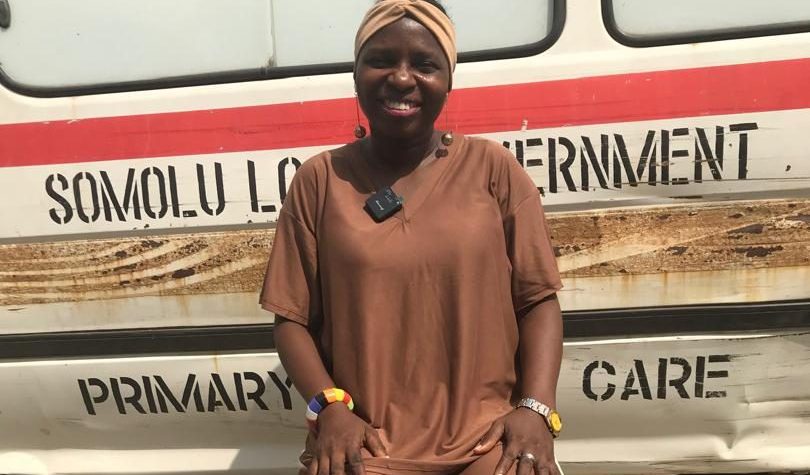Ibironke Idris is a tailor under the Apeleyin ward of Somolu Local Government Area in Lagos State. Her dedication to her role as a Health Champion, ensuring that people take charge of their health, is truly remarkable. In her interview, she shared how she convinced members of her community to embrace vaccination, debunking myths they had previously heard and believed.
What are some of the new skills or things you learned?
What I learnt really amazed me because of the kind of diseases we have in the environment now, especially this recent cholera outbreak. I have been teaching my family to not pick up anything that falls on the ground and after that I also communicated with my neighbors in a meeting where I called all the women and taught them about keeping the environment clean and keeping items where they should be, especially telling them to not expose our dustbins because of the deadly diseases that we have around now. I also told them to try to educate their children to wash their hands regularly.
How confident do you feel now about teaching others how to prevent the spread of diseases?
Ah, I feel very confident about teaching people.
Can you share a specific example of something you did in your community to spread the word about staying healthy after you became a Health Champion?
I went to a school close to me where I advised the teachers to keep their dirt properly to prevent children from picking up things from the floor and putting them in their mouth, and also advised them to tell the children the same. I even advised them on using Veronica buckets for children to wash their hands.
What changes have you noticed around you since you started sharing what you learned?
I went back to that school to check if they were doing what I taught them, and saw that they actually got the Veronica bucket and are implementing what I taught them. In my house, too, we always monitor ourselves to ensure that everyone is doing the right thing. Our compound is much cleaner now. We recently had this yellow fever vaccination. Some people were convincing others not to take it. Some even started giving examples of this other HPV vaccine, saying that it was used to reduce the population. But after I engaged with them, they later realised that it is very important, and they have now come back and started taking it. People started looking for it. When I saw the population of people that later started coming to take the yellow fever vaccine, I was amazed. I could not believe that encouraging people could have such an impact. I made sure to address them and tell them about the importance of taking it for free now instead of having to go to the hospital to pay money for it. I encouraged them to take it for their futures.
What challenges have you faced while using what you learned in the community, and how did you handle these challenges that made reception easier?
Actually, it’s part of our work. We are already used to it. Due to the economic situation, when you go to talk to people, they want to send you away, but I try to calm them down and help them understand the importance of preventing diseases.
In the future, what role would you like to play in keeping your community safe, and what would you like to see differently in your community when it comes to staying healthy?
I would like to continue to sensitise people to help them understand the importance of preventing diseases.

Watch the full story of the SCKaR-IDP project




